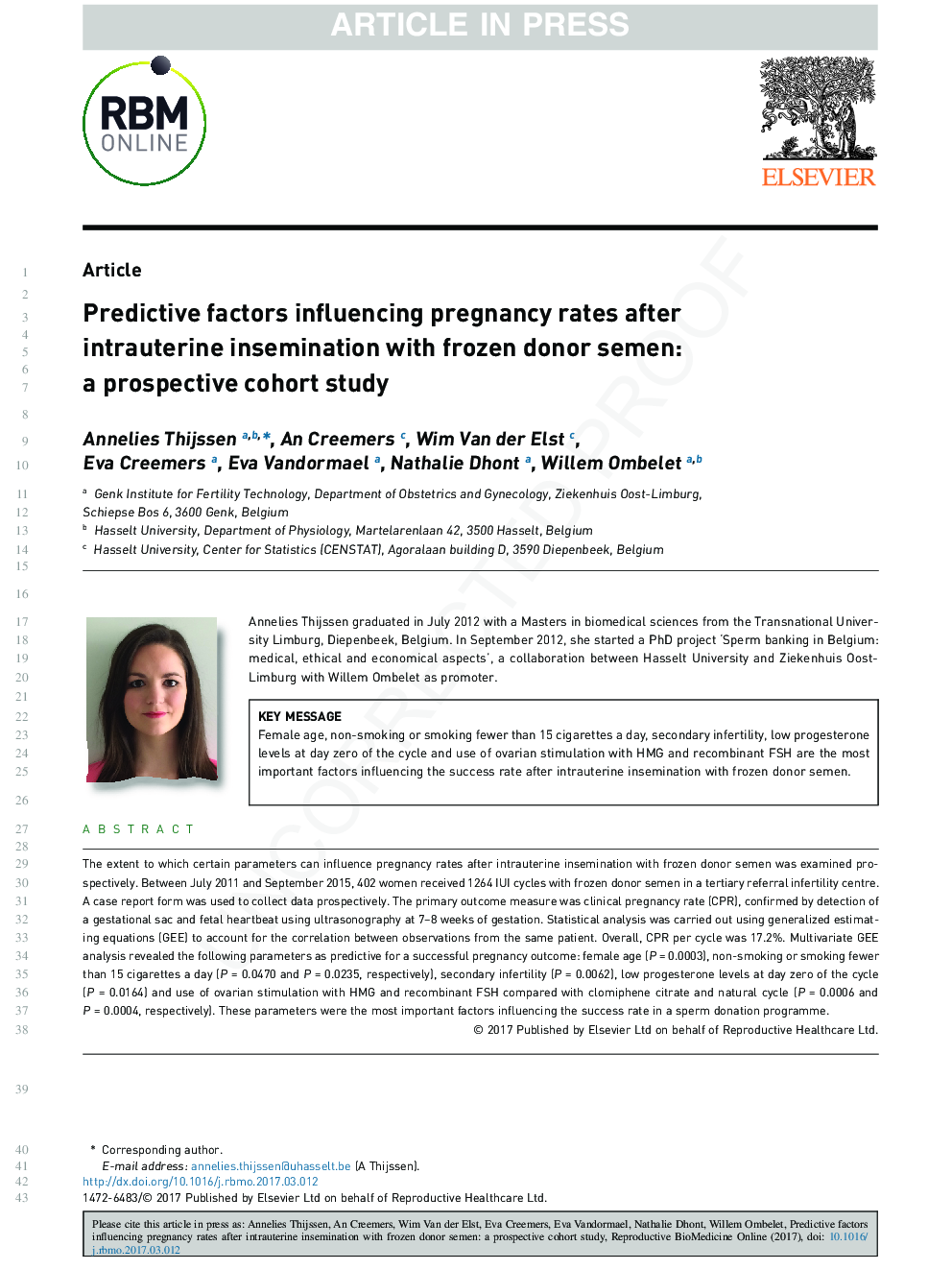| Article ID | Journal | Published Year | Pages | File Type |
|---|---|---|---|---|
| 5696765 | Reproductive BioMedicine Online | 2017 | 8 Pages |
Abstract
The extent to which certain parameters can influence pregnancy rates after intrauterine insemination with frozen donor semen was examined prospectively. Between July 2011 and September 2015, 402 women received 1264 IUI cycles with frozen donor semen in a tertiary referral infertility centre. A case report form was used to collect data prospectively. The primary outcome measure was clinical pregnancy rate (CPR), confirmed by detection of a gestational sac and fetal heartbeat using ultrasonography at 7-8 weeks of gestation. Statistical analysis was carried out using generalized estimating equations (GEE) to account for the correlation between observations from the same patient. Overall, CPR per cycle was 17.2%. Multivariate GEE analysis revealed the following parameters as predictive for a successful pregnancy outcome: female age (P = 0.0003), non-smoking or smoking fewer than 15 cigarettes a day (P = 0.0470 and P = 0.0235, respectively), secondary infertility (P = 0.0062), low progesterone levels at day zero of the cycle (P = 0.0164) and use of ovarian stimulation with HMG and recombinant FSH compared with clomiphene citrate and natural cycle (P = 0.0006 and P = 0.0004, respectively). These parameters were the most important factors influencing the success rate in a sperm donation programme.
Related Topics
Health Sciences
Medicine and Dentistry
Obstetrics, Gynecology and Women's Health
Authors
Annelies Thijssen, An Creemers, Wim Van der Elst, Eva Creemers, Eva Vandormael, Nathalie Dhont, Willem Ombelet,
